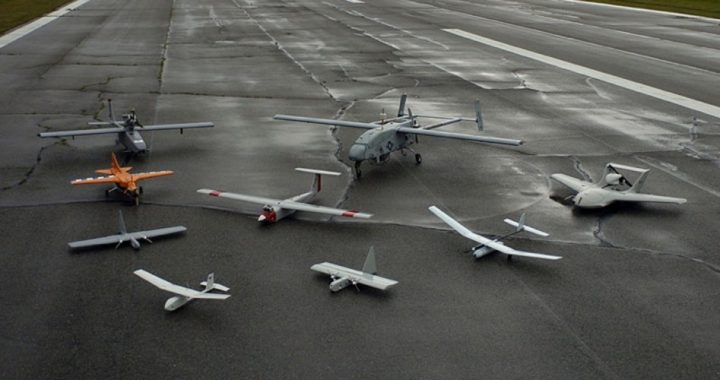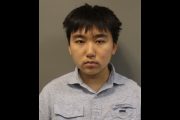
St. Louis Police Chief Sam Dotson has called for drones to patrol within a year in an effort to better patrol the city’s highest crime areas. The proposal has drawn ire from privacy advocates.
“I think the technology is there now domestically for law enforcement agencies to rely on unmanned aerial observation platforms to do a variety of things,” said Dotson.
Some of the requested applications include tracking suspicious vehicles and surveying high-crime areas. The use to which these devices would be used would be determined by internal police guidelines.
Dotson contends that the use of the equipment would not differ too significantly from the types of technology that is currently used by law-enforcement officials. “That’s what we use helicopters for now, I think that’s what we use neighborhood cameras (for)…. If you’re in a public space there is no expectation of privacy,” added Dotson.
Dotson is not the only police head to call for the use of drones for surveillance purposes. Last year, the Ogden Police Department filed an application to fly an unmanned surveillance blimp at a height of just 400 feet over the city to monitor criminal activity. That application had been rejected by the FAA as a result of safety concerns.
Following the Boston Marathon bombing, Boston’s Police Commissioner Edward Davis announced that he would like drones to be present during next year’s marathon.
The Alameda County Sheriff’s Office had asked the Alameda County Board of Supervisors to approve a grant in the amount of $31,646 to purchase a drone last year.
However, the Alameda County Sheriff’s office was forced to suspend the purchase of a surveillance drone after mass public outcry indicated fierce opposition to the plan. Privacy advocates criticized the Alameda County Sheriff’s office, voicing concerns that the use of surveillance drones will violate privacy protections.
Similar outrage surrounds the request for drones in St. Louis as well. An ACLU representative called the drones “big brother in the sky all the time,” adding, “before we get too far with this technology I think we as Americans deserve to know the rules that would protect us from that kind of constant surveillance day in and day out everywhere we go.”
But there are clear indications that drones have been used for surveillance purposes throughout the country.
In April of 2011, the EFF filed a Freedom of Information request on the use of the drones, but the DOT failed to release the information requested. The EFF then filed a lawsuit against the United States Department of Transportation in January of 2012 “demanding data on certifications and authorizations the agency has issued for the operation of unmanned aircraft, also known as drones.” Certifications by the Federal Aviation Administration are required for anyone who wishes to operate a drone in the United States over 400 feet.
Jennifer Lynch, the staff attorney for the EFF who filed the suit, said in a statement that the use of drones for non-military purposes is “raising significant privacy concerns.”
“Drones give the government and other unmanned aircraft operators a powerful new surveillance tool to gather extensive and intrusive data on Americans’ movements and activities,” said Lynch in a statement. “As the government begins to make policy decisions about the use of these aircraft, the public needs to know more about how and why these drones are being used to surveil United States citizens.”
Months later, that lawsuit helped to uncover 125 drone certificates. It also revealed all the entities licensed to fly domestic drones, which include police departments from Seattle, Washington, to Little Rock, Kansas, as well as 10 public colleges and universities, and several federal agencies, such as the USDA and the Department of Energy.
The most notable finding, however, is that the majority of drones are being used for the purposes of surveillance. The EFF reports that a cursory glance at the technology of the drones reveals that the prime purpose of the unmanned vehicles is for surveillance:
With some exceptions, drone flights in the U.S. have been all about developing and testing surveillance technology. The North Little Rock Police Department, for instance, wrote that their SR30 helicopter-type drone “can carry day zoom cameras, infrared cameras, or both simultaneously.” Not to be outdone, the Seattle Police Department’s drone comes with four separate cameras, offering thermal infrared video, low light “dusk-dawn” video, and a 1080p HD video camera attachment. The Miami-Dade Police Department and Texas Department of Public Safety have employed drones capable of both daytime and nighttime video cameras, and according to the Texas Department of Public Safety’s Certificate of Authorization (COA) paperwork, their drone was to be employed in support of “critical law enforcement operations.”
While the release of the document is a major step in the right direction, the EFF indicates that there must be more “transparency” around the use of the drones for domestic surveillance. The EFF has teamed up with MuckRock to push Internet users to join in the fight for more transparency.
There is no indication that the use of drones will subside anytime soon.
Earlier this week, Senator Rand Paul asked FEMA’s Timothy Manning to clarify whether the Department of Homeland Security provided local communities with money to buy surveillance drones, to which Manning responded, “There have been some grantees that have purchased remote control low-level aircraft … that have cameras for monitoring.”
The DHS has already provided funding to local police forces for the purpose of purchasing aerial surveillance, including $250,000 to the Montgomery County Sheriff’s office.
And the DHS is reportedly developing drones for “public safety applications” at Fort Sill, Oklahoma.
Likewise, CNet’s Declan McCullagh obtained government documents that detail how the DHS is customizing Predator drones designated for overseas military operations. Some have articulated concerns that the drones will be used for identifying civilians who are carrying guns.
Still, despite the increasingly pervasive use of drones, there are a number of states, including Massachusetts, that are moving to restrict the use of drones by law enforcement, with some even pushing for an outright ban.
Fox News reported in February, “Lawmakers in at least 11 states are proposing various restrictions on the use of drones over their skies amid concerns the unmanned aerial vehicles could be exploited by local authorities to spy on Americans.”




